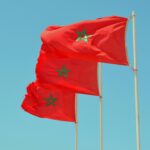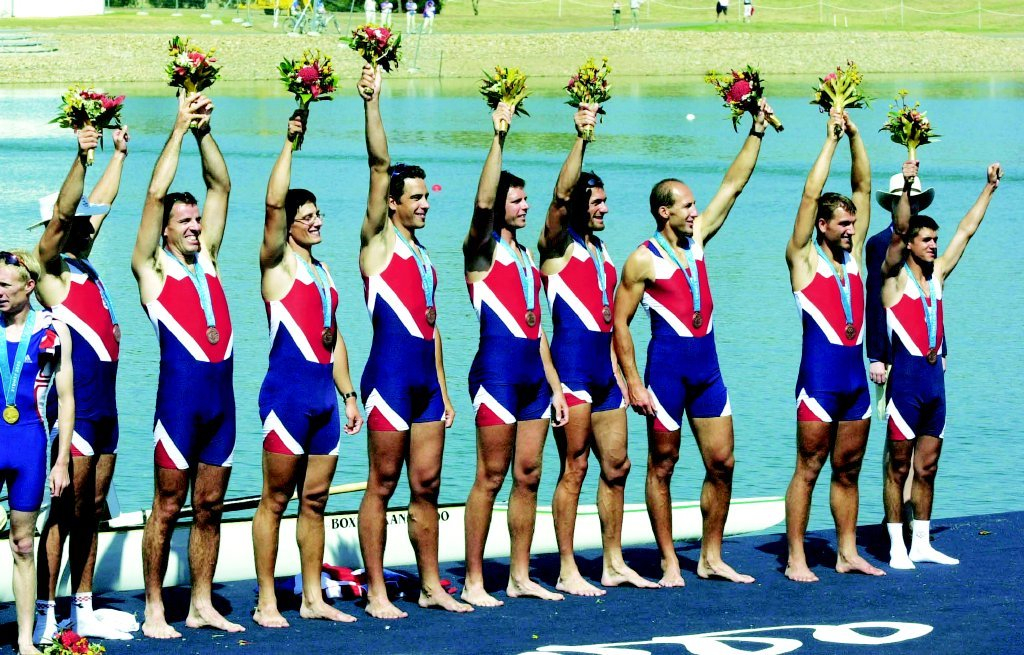
March 6, 2020 – TCN meets Olympic bronze medalist and the first Croatian athlete to compete in both the Summer and Winter Olympic Games – Split rower Igor Boraska.
“You know, rowing wasn’t my first sports choice,” Igor said as he sipped tea on the Riva one windy winter afternoon.
“There were a couple of sports I played before I started rowing, among them being football for five years, table tennis, basketball, judo, track & field. After I was done experimenting, when I was 15, I didn’t know what I should do. My uncle, my father’s brother,who was a national champion in rowing in the 1970s for Gusar Split, said, ‘why don’t you come down to our club and give it a try?’
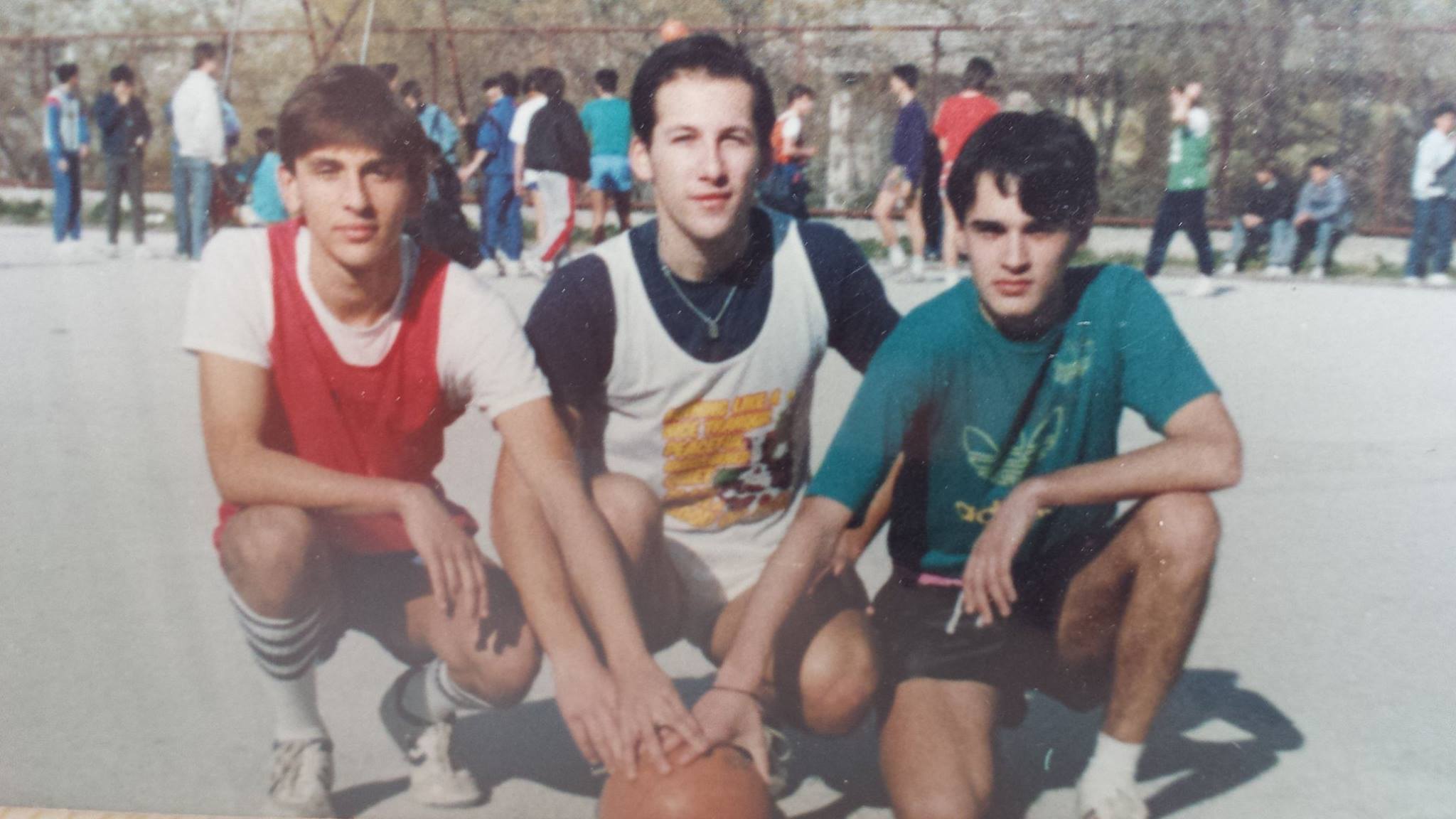
That was in 1985, and I was just finishing my elementary school and starting high school. I went to Gusar and I met a couple of guys that I already knew from the neighborhood, and actually, there were about 7-8 of them, so we could even fill the whole eight boat, just from the Split 3 suburb. I really liked the sport because you feel connected with nature and get to row along Marjan, Trogir, Vranjic… And it didn’t take long for the results to start coming.”
Igor spoke about the success he experienced early on in his career for Yugoslavia.
“After the second year of rowing, we changed coach. He was the coach only these two years when we were juniors, which is a very sensitive time for rowers – around 16 years old. He coached us for two years and we went on to become Croatian and Yugoslav champions and made the national team. Unfortunately, he left Split for Zagreb in 1989, and I had to go to the army after high school. I came back in 1990 and started rowing with the same guys, the same partner, Tihomir Frankovic. Immediately, in the first year, again as seniors, we were among the top three pairs in Yugoslavia, which was a remarkable result, because you had outstanding teams from Slovenia, Serbia and Croatia.
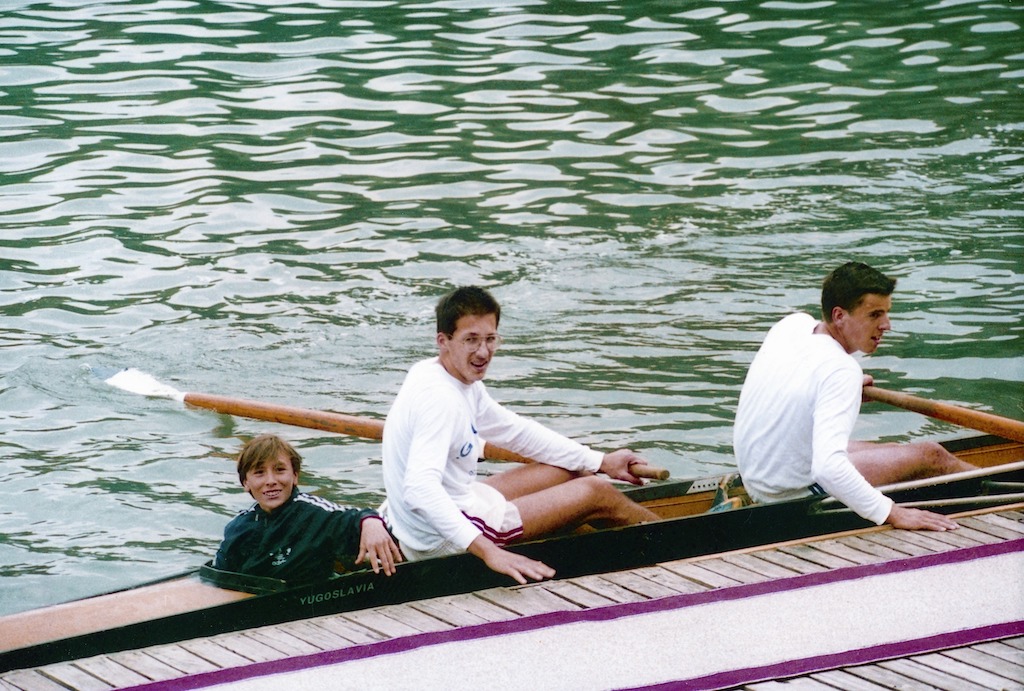
Then, in the spring of 1991, just before the war, we were competing for Yugoslavia in the coxed eight and were supposed to go to the World Championships that September in Vienna. In that eight team, there were seven Croatians and one Slovenian. All these guys were born in 1970/1971, so we were all almost the same year, and really good friends. Our final training camp for the World Championships was in Bled, Slovenia in August that year. I think it was the middle of August when they told us that Croatians would no longer participate in any Championship under the Yugoslav flag. On the other hand, in September 1991, the Slovenians still competed for the Yugoslav national team.
His career then took him to Providence, Rhode Island.
“I had already made contact with a few coaches in the USA, and really just wanted to go there and study, but it was a plus that they had great rowing programs. Many of the best academic universities are also the best for rowing. For example, Ivy League schools like Harvard, Yale, Princeton, and Brown. In the end, I chose Brown, because the coach, Steve Gladston, was really great to me from the first time we met at the airport in Providence. He took great care of me, showed me all the facilities, told me all about the future and that he intended to recruit a few more European rowers. Among them was a rower from Switzerland who later became an Olympic champion in the single scull, Xeno Müller, and a couple of other guys from the US national team. I knew that we were going to have a powerful team, and that we would be winning US national championships.
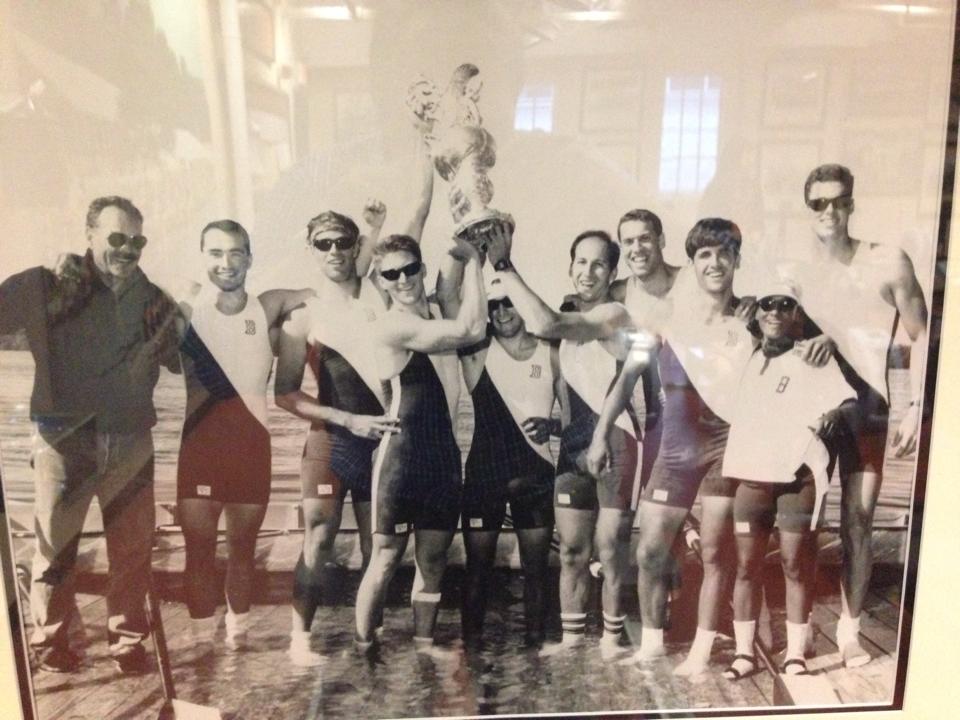
Apart from that, Brown was also a fantastic school, one of the best Ivy League schools, and they say it is the most liberal Ivy League school. They also had an open curriculum, which I really liked. Although I was an engineer and good at math and physics, I also liked some other things, like geography, history and economics, and I was able to take classes from those subjects as well. So I majored in two fields – I have a Bachelors’s Degree in mechanical engineering and economics, too.”
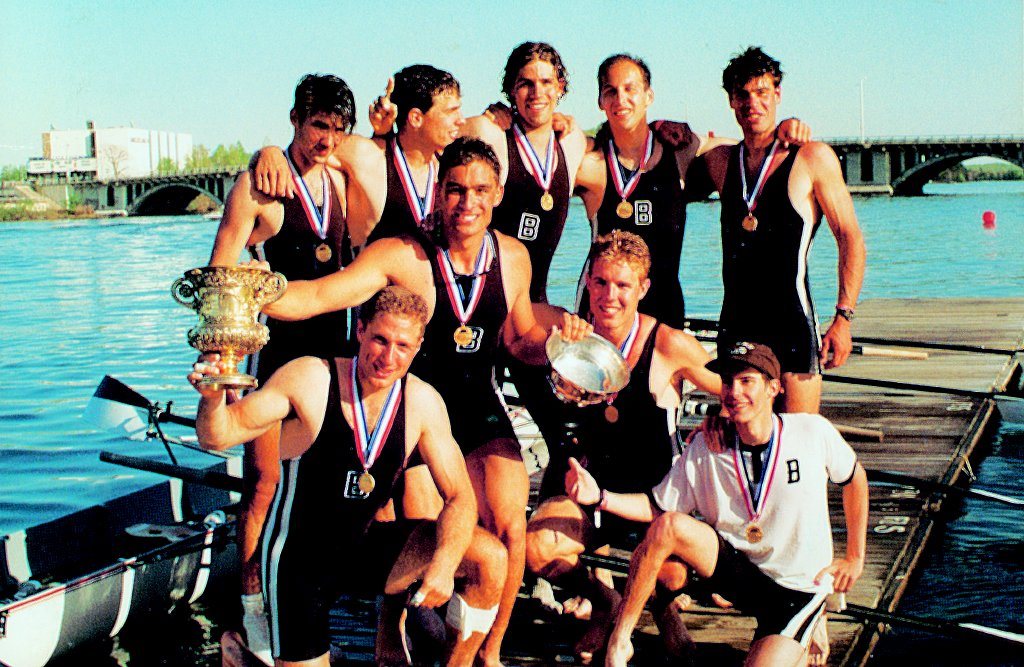
Igor was in the United States during most of the Homeland War.
“I was in Croatia during all summer and winter breaks, as I would come back and train and race with the guys here and at the international regattas in Europe. I have spent about 4 months a year from 1992 to 1995 in Croatia, when we were still at war, and in 1994, we went on to win the World Championships in the coxed pair with Tihomir Frankovic and Milan Razov.”
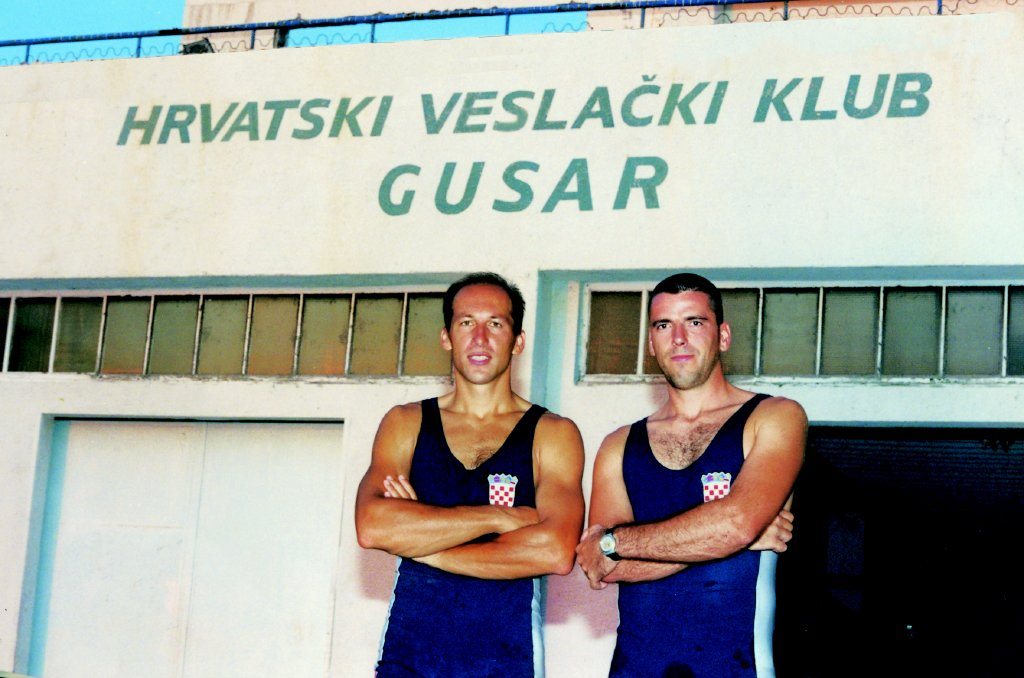
Boraska also held a 20-year-record for the best time in a coxed pair event set at 1994 World rowing championship.
“In 1994, we won the first gold medal for Croatia in any Olympic sport. In 1993, we finished 5th, and in 1992, unfortunately, we missed the Olympic Games because of political reasons, and some people from our rowing federation weren’t happy that the Gusar team would be there as a representative in coxed pairs. We were young, only 21, but we had a really good chance in 1992, and while we probably wouldn’t win a medal, we could finish in the top five or six pairs, had we been able to compete in the ’92 Olympic Games.
In December of 1994, I finished my studies and came back in 1995 to compete and start working in Croatia. I didn’t believe that I would be rowing more than another year, and only set my sights on the Atlanta Olympics Games in July 1996. ‘I will just do this Olympic Games and then get a real job’, I said. That didn’t happen.”
The Atlanta Olympic Games didn’t quite go as expected…
“We were really unlucky at the Atlanta Olympic Games and finished seventh in the end, although we were favorites to win one of the medals. It’s a long story, and I should probably give you my book, haha.
Anyway, we had four guys from Split – Frankovic, myself, Sinisa Skelin and Sead Marusic. Two months before the Olympics, we qualified in the coxed four and went on to Lucerne, which is the best regatta, and finished third there – even though we were in the lead for most of the race. We also had to race the other Croatian four to qualify for the Atlanta.
We were then favorites to win one of the first three places in Atlanta. However, one month before the Games, we went to acclimatize because of the high humidity and heat. We went to the Mississippi area and trained on the Tupelo, the birthplace of Elvis Presley. We were actually staying in Tupelo and training in one of the channels on the Mississippi River, at 6 am and 6 pm because of the heat. We spent three weeks there, and two days before we were off to Atlanta to the Olympic Games, there was a huge storm, and lightning struck a tree, which fell on our boat. Our boat fell apart.
This was in 1996, and there were no alternatives like there are today. In the USA, they didn’t have this type of boat. We used an Empacher type boat, which is German made. We called up a guy who said he was sorry and that he was already in Atlanta and didn’t have any spare boats. Though he had one spare boat for the German women’s team, but that is a much different and made for the average weight of 70-75 kilos. Our average weight was 95. That was the only boat we could borrow, so we did. When we sat down, the boat really felt low and just completely different. To compete in the Olympic Games with a completely new boat… that wasn’t ideal for us. Plus, we had a lot of heat, and in the end, we didn’t even make the top six to go in the final. We were first in the B final, and seventh overall.
The three teams from our semi-final went on to win gold, silver and bronze. We were fourth in our semi.”
The Atlanta mishap was only a minor obstacle to what Igor went on to achieve.
“1996 was definitely a disappointment and I just wanted to do one more Olympic cycle after that. In that Olympic cycle, between 1996 and 2000, we had great results. In 1997, we were the best pair again in Croatia and went on to win the silver at the Mediterranean Games in 1998, and won the silver medal at the world championships in coxed four.
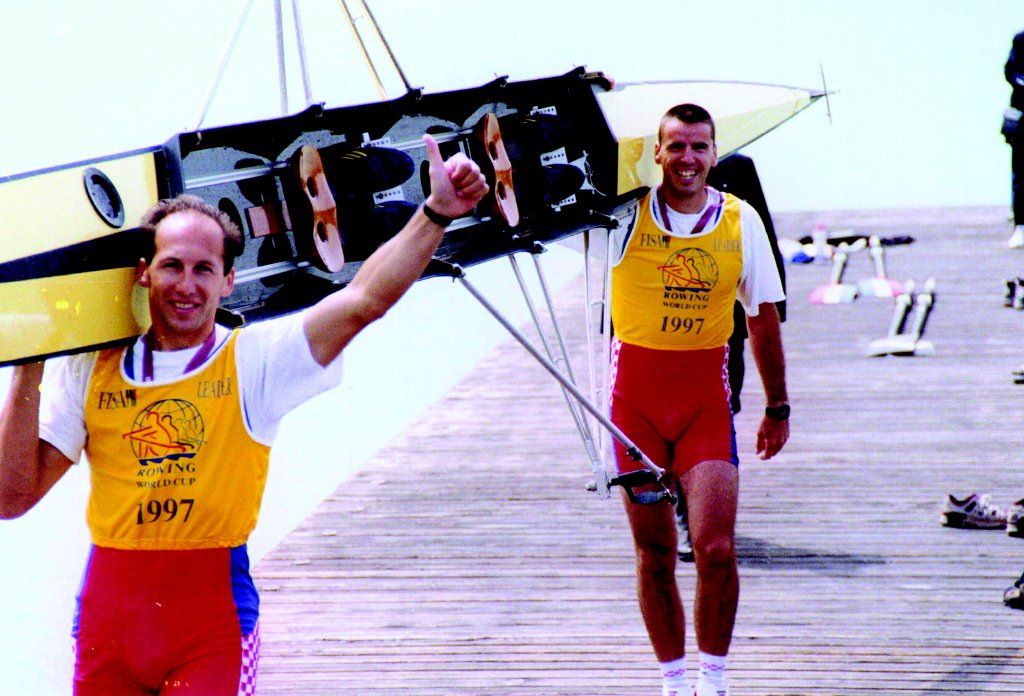
In 1999, however, we were performing so poorly; we didn’t know what was going on and were frustrated. Plus, the city and the club didn’t really give us any financial support. The club was in such a desperate situation that we were not able to get electricity and warm water. It was a really bad year, and I was nearly on the very of quitting.
We didn’t qualify in 1999 and had only one more chance in Lucerne in 2000 to qualify for Sydney. Then, in 2000, I said, ‘okay, I am just going to do these six more months and that’s it.’ That year, a couple of younger rowers emerged as a really good force in Croatian rowing, like the Skelin brothers and a couple of other guys from Zagreb and Zadar. There were exactly 8 of us very close to each other racing in pairs. We could see that we could have an excellent team and a bigger team, maybe not a four, but even an eight. It was a suggestion from our coach, Igor Culin, to try and row the first international regatta of the season in the eight, against the Italians in the Piediluco regatta near Rome. We went there and killed them – we beat them by more than 10 seconds. That was a good sign that we were on the right track.
The first World Cup regatta was held in Munich in May, and we knew all the top teams would be there – Great Britain, Germany Romania, USA. We decided to go and said that if we could make it in the top five or six, we will stay in the eight and try to qualify in the qualification regatta in June. We went to Munich and won. It was the first regatta as a Croatian eight. I rode in the eight at Brown for many years, but with the national team, that was the first time as we usually concentrate on smaller boats like pairs and fours.
Even back for Atlanta, we could form the eight, but everybody thought that the eight requires being together in one camp, training more and spending more time together. However, here, in 2000, we proved it all wrong. After only a few weeks of training together, we were able to beat everyone in the world. At that point, we knew we were good and would go to the Olympic qualification regatta in Lucerne. There were only two spots for the Olympics, and it was us and Canada to go.”
Igor won the bronze medal in Sydney with Branimir Vujevic, Niksa Skelin, Sinisa Skelin, Kresimir Culjak, Tomislav Smoljanovic, Tihomir Frankovic, Igor Francetic and Silvijo Petrisko.
“In Sydney, we were also one of the favorites, even though the US, Great Britain, and Australia all thought they would win. Most of the final race we spent in second place behind Great Britain and, in the end, Australia sprinted past us and we kind of lost power in the last 200 meters. But we won the bronze medal in Sydney, behind GB in first and Australia in second. And the world champions USA, who were almost undefeated for three years, came in fifth.
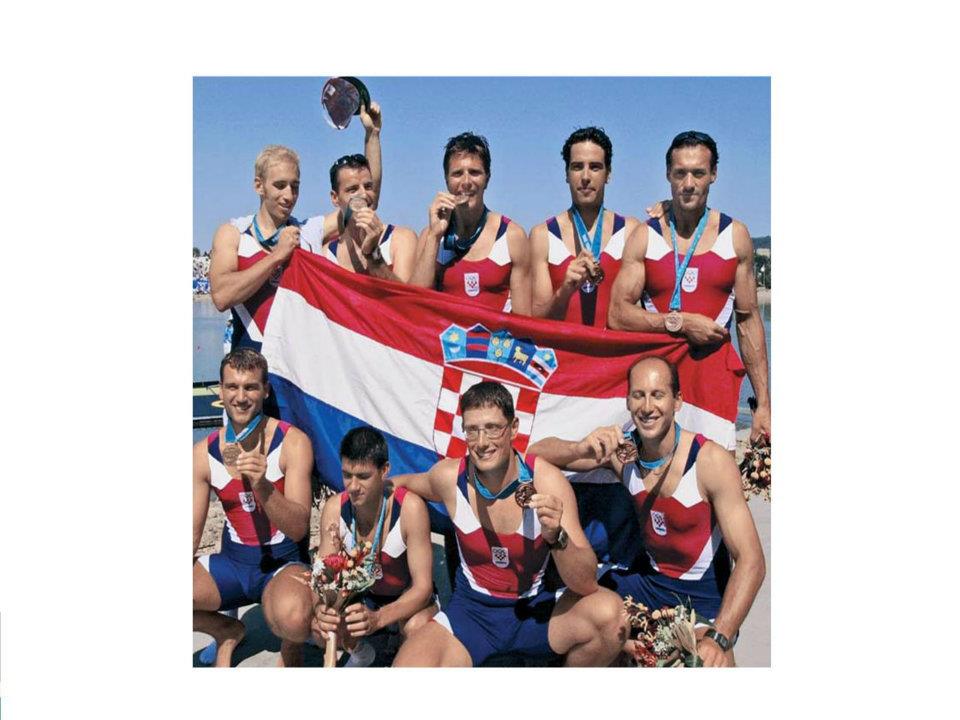
There were couple of my friends from Brown on their team and they couldn’t believe that they got beaten by Croatians, haha.”
Was that the highlight of his career?
“Definitely, especially because it was won in the event where ‘only the big countries can win’. Croatia was not supposed to be winning anything in the eight. The bronze medal, plus the first medal for Croatia ever in 1994, when we won the gold at the world championships, I like the same.
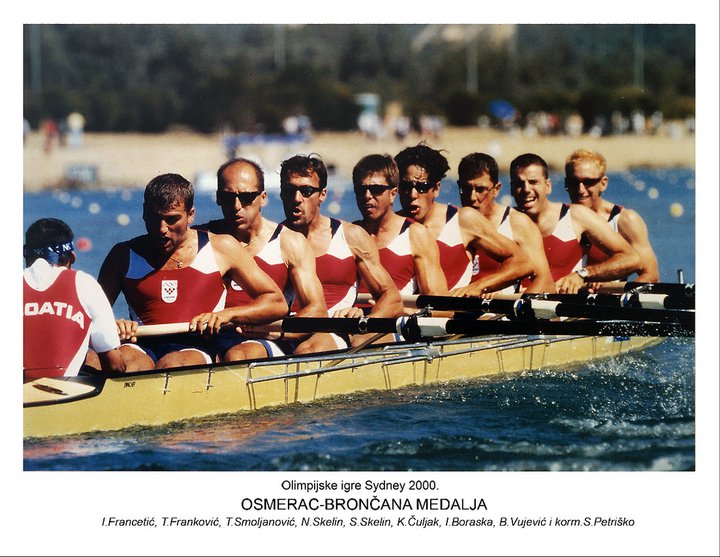
After that Olympics I didn’t stop rowing – I kept going for the next Olympic Games in Athens. The eight team stayed together for one more year and won a silver medal at the World Championships in 2001.”
Igor was the first Croatian to compete at both the Summer and Winter Olympics.
“After we won the silver medal, I immediately jumped into training for the bobsled – which is a completely different kind of training. It required more weights, more running.
I first took lessons back in 2000 and got the license but stopped because I went back to rowing in the eight. I joined the team again after 2001; at that point it was already World Cup season, where we had to get a certain number of points to qualify for the Olympic Games.
It all kind of happened because a good friend of mine, Ivan Sola, was a pilot, and also the Yugoslav champion in motorcycle racing. He told me some stories and I saw the movie Cool Runnings a couple of times, and it was just a new challenge and I figured I’d see what a bobsled felt like. We didn’t think about the Olympic Games; we thought we would just have some fun. After a few months, I said, ‘Ivan, we are doing this just for fun but I think we can do more.’ So I asked him what he thought we needed to qualify for the Olympic Games, to which he answered that we needed a few more guys who were really good and fast, potentially from the local track & field team. It turns out that all the guys were from Split. We had 7-8 guys on the team. At first, we didn’t use a four-man bobsled and used only a two-man bobsled. Ivan was always the pilot, and then we alternated.
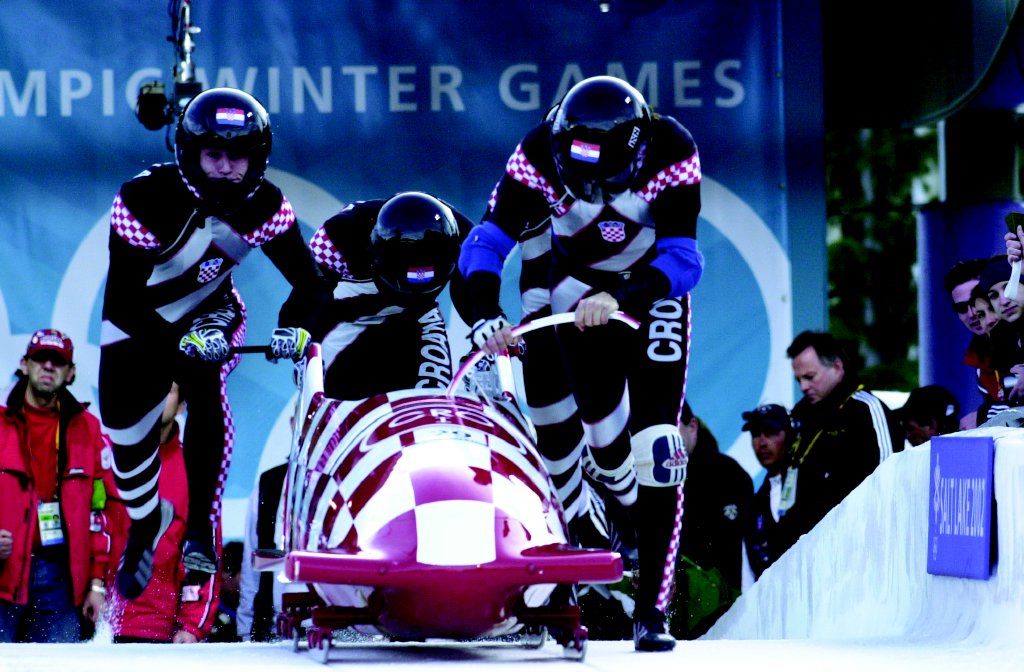
In late 2001, we missed a couple of points to qualify, and there was only one more event to qualify, in Lake Placid, and that bobsled track is infamous for being pretty dangerous – the devil’s highway, they call it. We knew that we would get enough points just to finish the race in the top 20 teams, which we did. However, in the third run, I remember we were literally just a few millimeters from flipping over. If we tilted just a little bit more, we would be disqualified.
We finished the raced, even finished in the top ten, and got enough points to qualify for the Winter Olympics in Salt Lake City in February 2002. We competed there and it was a lot of fun. It was completely different than being at the Summer Olympic Games. What I liked was that there was no pressure. At the Summer Olympic Games, there is always pressure to win a medal. You also have to get up early and practice, but in Salt Lake City, we didn’t have to get up early – and we would practice at 7 pm. We could have some fun and finally enjoy the Olympic Village. We saw Janica Kostelic win all her medals. It was a very unique experience overall. In the end, we also finished well – 26th out of 34th bobsleds. It was pretty good. This was also the first time that the Croatian bobsled team was at the Olympic Games.
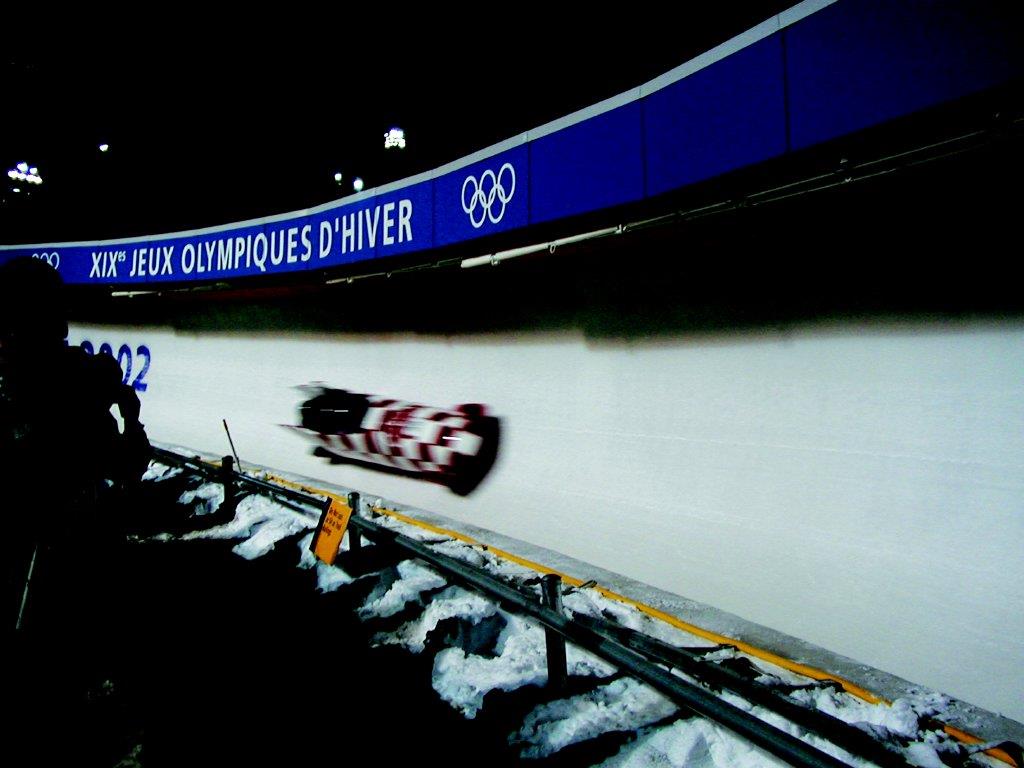
In 2004, after everyone knew about our bobsled story, the European Broadcasting Union announced a project and every country had to make a 10-15 minute short movie with actors. Elvis Bosnjak played me, and Vedran Mlikota played my partner. We had a bobsled here on the Riva, on wheels, where they were jumping in and out. The movie was called I Galebovi su se smijali (Even the seagulls had some laughs).”
Igor retired from international sport in 2004.
“The Olympics in Athens was supposed to be my last. I got elected as a member of the City Parliament in 2005 as a member of the city corporation in charge of sports, so I was in politics for two years, but I didn’t really like it. I came back to rowing in 2007. I wanted to try to qualify for Beijing, but in Beijing, I would be 38, and I would definitely be the oldest. None of the guys were left from my generation……… We went to the last qualification regatta, and this time it wasn’t in Lucerne, my lucky course, but in Poznan in Poland in June 2008. We were not quite fast enough. With 2004 standards, we had about the same time, but every four years, the standards get higher, and it wasn’t enough to qualify. We finished 5th, and we needed to be 1st or 2nd to qualify. That was technically my last international competition, in 2008.
Then I competed just two more years for my club, Gusar Split, until 2010, when I was 40 and I won the last gold medal in my career at the senior level. I am now winning medals in the masters’ events. That’s the whole rowing story.”
But is it?
“Haha, I will probably be competing again this year in a senior competition. I would like to try to win another gold medal. I don’t think anyone that was 50 ever won a gold medal in a senior rowing event. This championship is in Zagreb in April.”
So, how does Igor Boraska spend his time today?
“I am a member of the Croatian Olympic Committee Assembly and president of the International Relations Committee. I was the president of the board and I was also the president of the Spit Sports Association for four years, between 2012-2016. I might run for president again this year. After the Olympics, people in Split sports want me to run again. We will see, sport is my life.
In the meantime, I have been competing in a different type of rowing – or coastal rowing. It’s different; it’s not like the Olympic type of rowing where you have a straight line for 2,000 meters. In coastal rowing, it is more like sailing. You are out on the open sea, and the boats are sturdier. You have turns and big wakes, and winds coming from all sides. Even if you’re not in top shape (in terms of highest Olympic rowing standards), you still can win or be among the top ten in the world, which we managed a couple of times between 2012 and 2020. I like to row in the sea.
Last year we had the championships in Hong Kong in November. The wakes were coming from all sides because it is the busiest port in the world. We didn’t make it to the final but were still pretty decent. The year before in Vancouver, we were in the A final, and before that, in Monaco and Lima, Peru, we were it the A final both years.”
But a true testament to the fact that Igor can do it all is confirmed by his participation in the New York Marathon at 47. It was his first marathon ever, and he finished with a final time of 3:57:48. The London Marathon is next on the horizon.
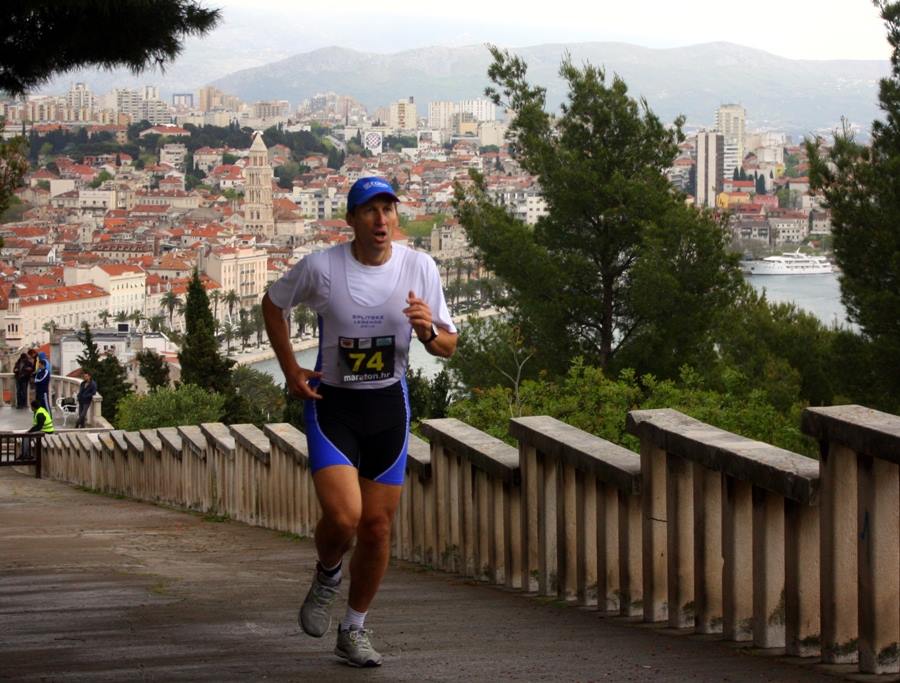
The future of Croatian rowing is bright.
“We have great human potential here. Unfortunately, we don’t have great seniors in my club at the moment, but we have two guys who won 4th place at the junior championships last year in Tokyo. Their names are Karlo Borkovic and Ivan Vukovic. They are really good at their age. If they continue to progress, I believe that in a couple of years, maybe even for the Olympics in Paris in 2024, they will be able to compete and qualify. Rowing is a tough sport, and right now, the center of rowing, which was mostly in Split, has moved to Zagreb because of the Sinkovic brothers and Damir Martin. Zagreb also has the best conditions to train at Jarun Lake.
But the winter training is best done on water near Skradin and Šibenik or Peruca Lake in Inland Dalmatia during the summer. We have everything that is needed here in Croatia.
I think Sinkovic brothers will definitely win a medal in Tokyo Olympic Games, and I hope for gold again, but you never know. It’ll be very hot and humid in Japan in late July. Damir Martin had lots of health issues with his hip and had surgery. He just got back in the boat a month ago. He is very dedicated. I wouldn’t say he is a favorite to win a medal now, but who knows. It’ll be a great result even if he makes the final – the top 6, considering his health problems.
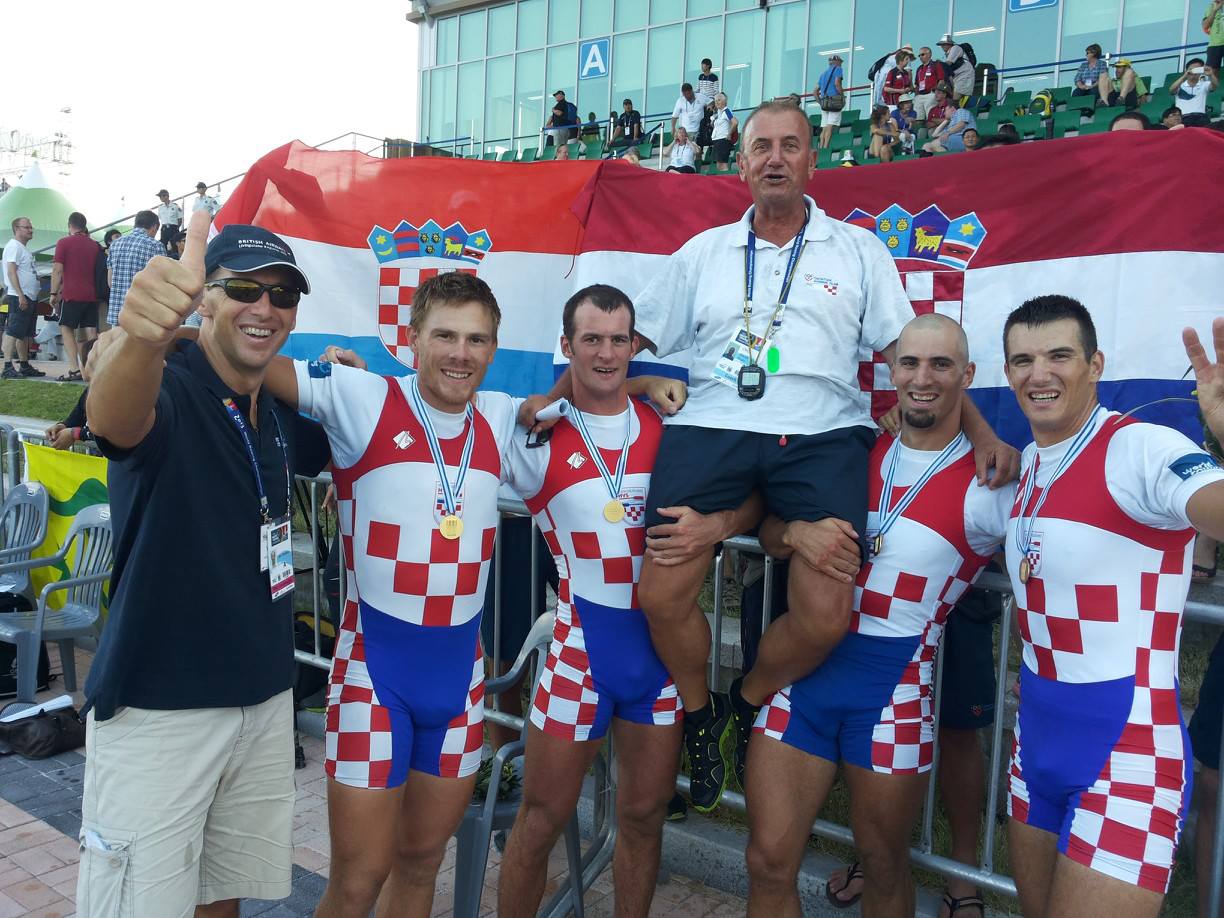
We will have these three guys, the same three that won the gold and silver in Rio. There is also one young team, either a four or a double scull, who might even qualify. They have the last qualification regatta at the beginning of June, so we will see if we get another qualification spot in the double scull. There is also a women’s team in the double scull, the Jurkovic sisters from Korcula, and another pair from Zagreb. It would be great if we had a women’s team. It’s only been men so far to compete for Croatia in rowing at the Olympics, though we have had a couple of girls come close.
Rowing in Croatia, in general, has massive potential. Coastal rowing is also gaining popularity. It is very popular in Mediterranean countries but not in Croatia yet. In France, Italy, Spain – there are more clubs in coastal rowing than in rowing. Anyone can take part in coastal rowing. Someone who has never rowed before can do it because the boats are much sturdier and wider. It’s easier – even older people who used to row earlier in their lives can do it. It’s also great for tours. I have talked with a lot of Italian rowers who would like to arrive in Zadar and then go on a rowing tour through Kornati and to Split, but we don’t have those boats yet. There are only a few in Croatia – and in Split we don’t have any.
Top athletes and recreationalists can both use this type of rowing. What’s even better is that one of the events will become an Olympic event in 2024. It’ll be the mixed double scull. It will be the first rowing event to be mixed.”
Igor will be at the Tokyo Olympics this summer, too, but this time as a commentator.
“Yes, I will be there, co-commentating for Croatian Radio Television. That’s the plan for this year, at least.”
To read more about sport in Croatia, follow TCN’s dedicated page.



